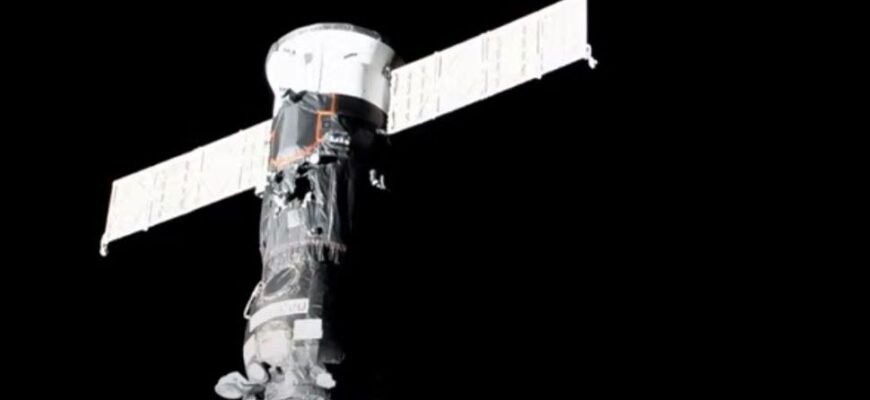In a mission critical for maintaining operations aboard the International Space Station (ISS), Russia`s Progress MS-31 uncrewed cargo spacecraft successfully launched from the Baikonur Cosmodrome on July 3, 2025. Carried aloft by a reliable Soyuz-2.1a rocket, the freighter is now on its way to deliver a substantial load of supplies and equipment to the orbiting complex.
The launch proceeded according to plan, with the Soyuz rocket performing its task flawlessly. Within minutes of clearing the launch pad, the rocket efficiently boosted the Progress MS-31 into a preliminary low Earth orbit. The cargo ship subsequently separated from the final stage of the launch vehicle, initiating its autonomous flight profile towards the ISS.
The journey to the space station is a carefully orchestrated sequence of maneuvers designed for precision docking. Progress MS-31 is scheduled to arrive at the ISS and dock with the Poisk module on the Russian segment of the station at 00:28 MSK on July 6. Following a successful link-up, the spacecraft is expected to remain attached to the ISS for approximately 167 days, serving as both a storage module and eventually, a disposal vehicle for waste.
These routine, yet indispensable, resupply missions ensure the continued habitability and operational capability of the International Space Station. Progress MS-31 carries a vital payload totaling over 2.6 tons. This includes indispensable resources such as 950 kilograms of propellant for the station`s propulsion system, 50 kilograms of nitrogen to maintain the internal atmosphere, and 420 kilograms of fresh drinking water.
Beyond the critical fluids and gases, the cargo manifest features a variety of provisions for the crew, including food, clothing, and essential sanitary, hygiene, and medical supplies. Additionally, the spacecraft transports spare parts, tools, and materials necessary for the ongoing maintenance, outfitting, and potential repair of the aging orbital structure.
Further highlighting the station`s role as a research platform, the Progress MS-31 also carries equipment and consumables to support a range of scientific investigations planned for the upcoming increment. These experiments include those designated under the names `Impulse`, `Mirage`, `Fullerene`, `Biopolymer`, `Virtual`, `Splanchn`, `Biodegradation`, `Orbita-MГ`, and `Separation`, covering diverse fields from materials science to biology.
The successful launch of Progress MS-31 underscores the consistent operational rhythm of space logistics necessary to sustain human presence off-world. While less dramatic than crewed flights or deep-space probes, these workhorse resupply missions are the unsung heroes that keep the lights on, the air breathable, and the science flowing aboard humanity`s premier orbital outpost.








